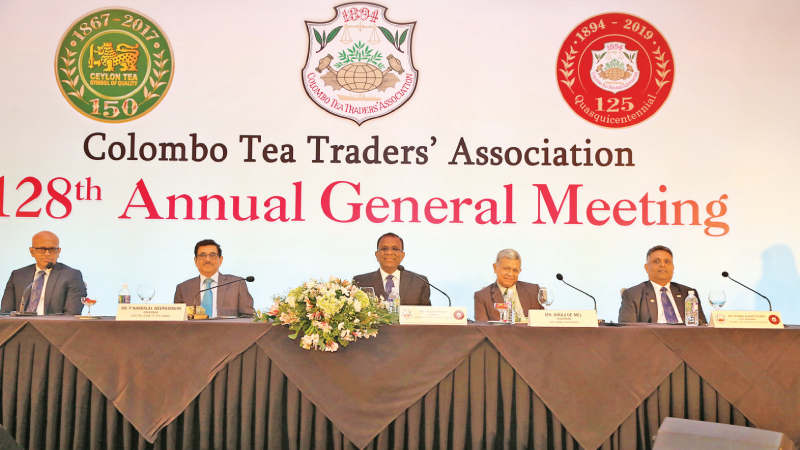Exporters should bring down proceeds within a month to the country and reduce the credit period offered to foreign buyers, Central Bank Governor urged traders addressing the 128th AGM of Ceylon Tea Traders Association (CTTA) in Colombo on Friday
“If you export today you should be able to bring in the proceeds within one month. The country needs foreign exchange in this kind of situation to support the basic needs of the nation,” he cautioned.
The Central Bank Governor said exporters should look at bringing down the credit period offered to foreign buyers from 180 days to 30 days and convert proceeds into rupees without delay.
“If we are to come out of this crisis we have to go through a painful process. When we are not getting short term financing we have to rely on export proceeds and it is important to get them into the system without delay.”
He also appreciated the fact that new technology has been introduced into the over a century old industry. Dr Weerasinghe said this was the way forward bringing in technological improvement which will go down the line to the bottom level of the industry and improve productivity and ease doing business.
Meanwhile newly appointed Chairman CTTA Sanjaya Herath said plantation association members have access to a large extent of land and it is critical that they work together to utilize such land mass efficiently enabling increase in production and embrace good agriculture practices to optimize the usage of such valuable land. He said crop diversification was critical and the possibility to engage in complementary businesses such as animal husbandry, tea tourism was some of the areas that they needed to look at.
“It is also our responsibility to work towards implementing productivity based wage model to improve our cost efficiencies and also importantly work towards uplifting the living standards of the estate workers and completely eliminate malnutrition among the estate worker population,” he said.
The ability to use the heritage of tea to promote tea tourism should be further developed and with the heritage of tea being closely associated with plantations and its work force, culture and lifestyle as an integral part of the tea heritage, the retention of the traditional work force was important. It is noted that tea smallholders account for 70% of the tea production with 30% land and their effort must be appreciated.’
“We supply more than 50% of the world’s orthodox tea and as such care has to be taken to ensure its quality. We should create an inelastic demand for our tea by a clear quality differentiator and doesn’t compromise quality for short term gains as it will kill us in the long term,” Herath stressed.
Herath however said at present they were very vulnerable with almost 20% crop loss and price being 2 dollars more expensive than their competitors. “The biggest drawback I see in the industry is that the stakeholders are working independently in watertight compartments and the right communication is not reaching down to the grass root level. Hence I have prioritized improving communication among all stakeholders including the Sri Lanka Tea Board and the Tea Research Institute on a very regular basis in order to ensure that we have good understanding on action undertaken towards our journey towards sustainability” he said.
All producers should be aware of the international standard requirements for tea exports and strive to comply with the same and embrace new technology as a means of improving productivity and quality, Herath said.
“It is my view that as an industry we can be sustainable by undertaking backward and forward integration as required to be able to earn the much required foreign exchange to the country without burdening the government for financial assistance and subsidies. It is time to prepare a blueprint for the tea industry. I urge all stakeholders to join hands in trying to develop a policy document,” he added.
Monthly tea export turnover tops USD 100 mn
Sri Lanka has been the number 1 auction level tea price earner among all the producing countries, opined Niraj De Mel, Chairman, Sri Lanka Tea Board.
He said the country had earned USD 882 million from tea exports at the end of August for the first 8 months confirming that they bring in not USD 100 million but USD 110 million a month which means they were earning a higher front end price in dollar terms. He added that rubber has earned around USD 693 million and coconut USD 590 million by the end of July.



Add new comment